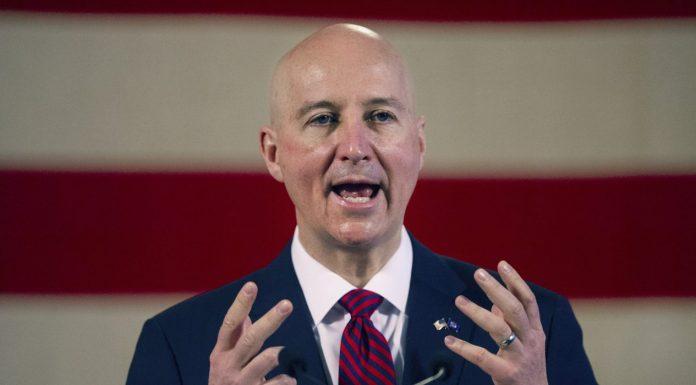(Headline USA) Nebraska education officials announced Thursday that they have largely scrapped plans for gender identity lessons in public school curriculum after an uproar from concerned citizens who argued that the topics weren’t appropriate.
The new draft of the proposed sexual standards from the Nebraska Department of Education came after agency officials faced intense criticism from parents, school boards, state lawmakers and Republican Gov. Pete Ricketts, who held town hall events to blast the proposal.
Opponents flooded a meeting of the Nebraska State Board of Education, an elected board that oversees the agency.
“What we’re really trying to do is understand what Nebraskans as a whole accept as a standard and an expectation of what our students learn in school,” Matthew Blomstedt, Nebraska’s education commissioner, said Thursday at a press conference. “There’s always going to be a little bit of tensions over those types of issues, especially in this sense.”
Nebraska currently has no statewide sex-education standards. Even if adopted, the proposal would just be recommendations that would be optional for school districts.
However, it comes as a national reckoning occurs over the overreach of leftist indoctrination in the school system, which has also drawn a red-line over attempts to promote pro-Marxist Critical Race Theory.
The divisive cultural rot promises to be a major factor in the 2022 midterm election alongside kitchen-table issues such as the Biden administration’s massive inflation, border crisis and draconian coronavirus mandates.
Blomstedt said school officials tried to balance the wishes of concerned parents and activists in the LGBT community, whose members have argued that they feel excluded in the Cornhusker State because of how they identify.
“Standards and structure will not solve all of those issues,” he said. He went on to add, “We’re going to have those challenges whether we adopted those standards or not.”
Still, advocates for the LGBT community blasted the decision to gut major parts of the first draft.
“Nebraska schools need to be welcome, safe spaces for all students,” said Abbi Swatsworth, executive director of OutNebraska.
“This erasure does nothing to protect LGBTQ+ students,” Swatsworth continued. “The fact that LGBTQ+ people exist should not be controversial. We will continue to advocate for medically accurate, inclusive standards for our community.”
Swatsworth said the new draft “largely omitted the reality of LGBTQ+ youth and families.”
However, the department’s acquiescence didn’t entirely satisfy opponents, either. Some expressed anger that it even introduced the proposal in the first place.
“The trust just isn’t there right now,” said Sen. Joni Albrecht, of Thurston, who helped organize opposition to the measure among a majority of Nebraska lawmakers. “The public doesn’t believe that they’re really, truly going to do what’s right.”
In a statement, Ricketts said the new proposed standards “still need improvement” because they teach the concept of gender identity. Ricketts said sex education and similar topics should be addressed at home, not in schools.
“The continued presence of gender ideology in the standards leaves the door open for this material to be expanded either before these draft standards are approved or in future years when these standards are revisited,” Ricketts said.
Two prominent socially conservative groups, the Nebraska Catholic Conference and the Nebraska Family Alliance, issued a joint statement praising parents who publicly objected to the proposed education standards.
But the groups said they still had concerns about the altered proposed standards and planned to spend more time reviewing them.
Under the original proposal, kindergartners would have learned about different family structures, including same-gender families. First-graders would have been taught about gender identity and gender stereotypes.
Sixth graders would have learned about a range of identities related to sexual orientation, including heterosexual, bisexual, lesbian, gay, queer, two-spirit, asexual and pansexual. They also would have been taught the differences between cisgender, transgender, gender nonbinary and gender expansive.
Most of those lessons were removed from the new draft, which proposes lessons for fifth graders on “how external factors influence perceptions about body image, gender roles and attractiveness.”
Seventh graders would be taught that biological sex and gender identity may differ.
The state education board will meet next week to hear public input on the new standards.
Adapted from reporting by the Associated Press

